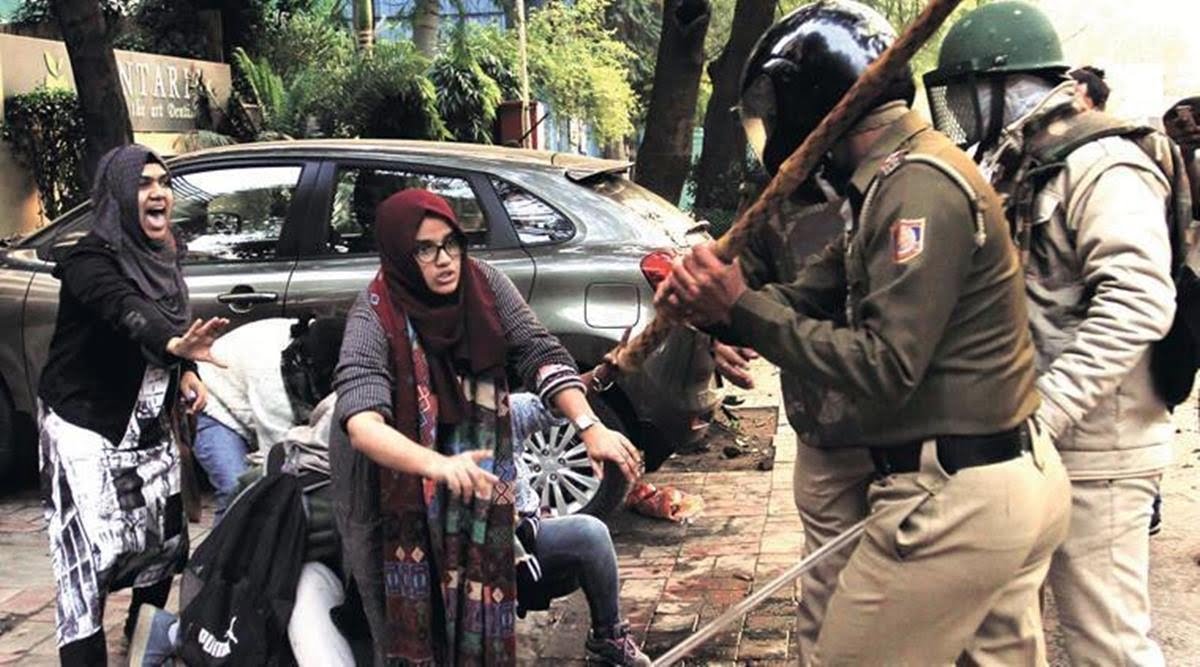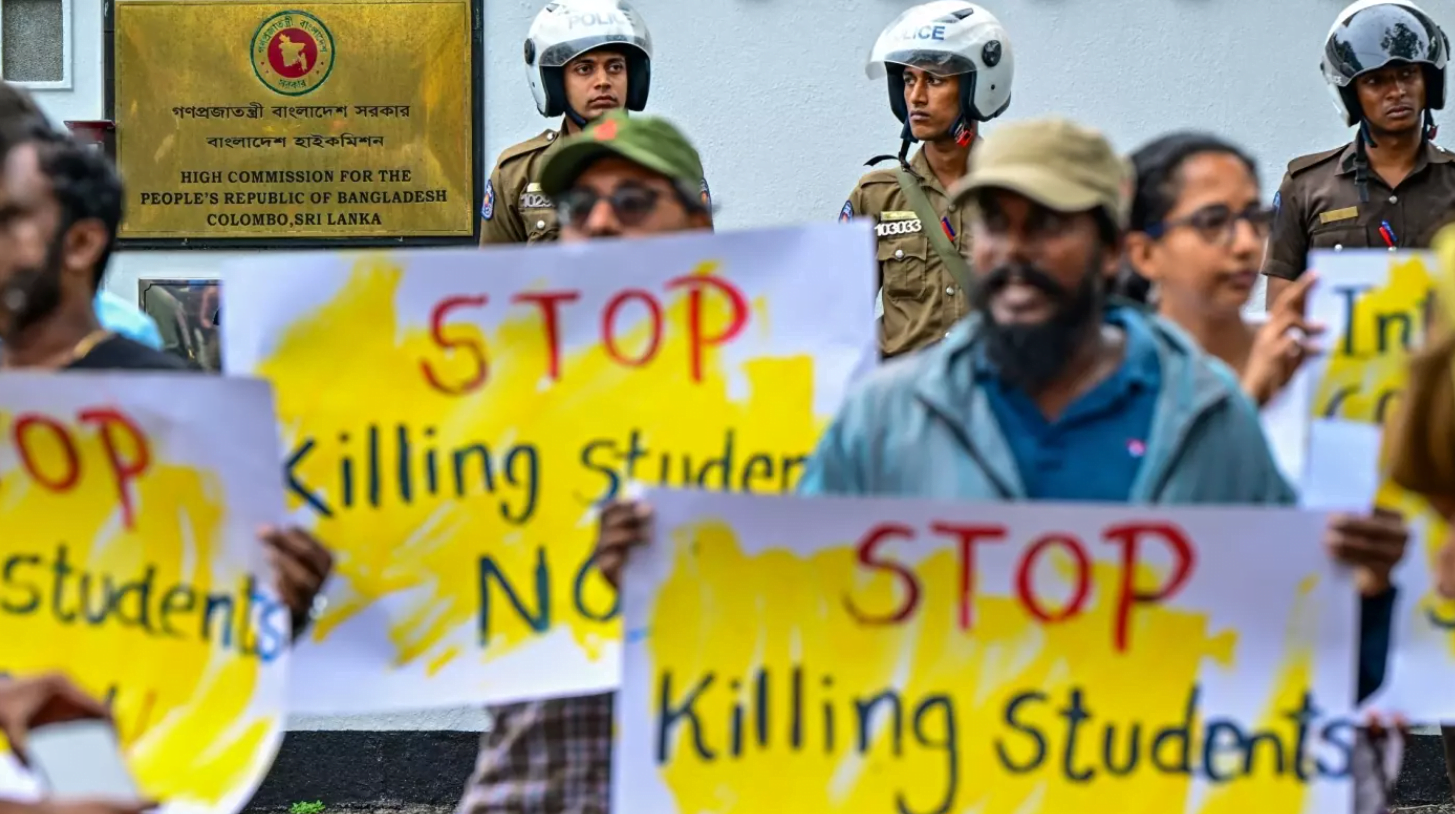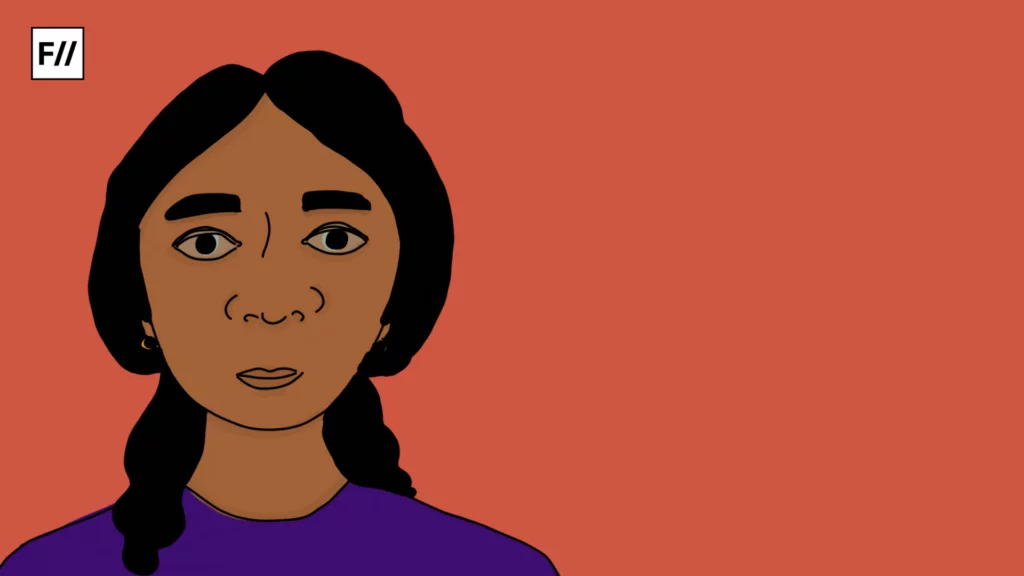“I never repeated whatever you hit me for, not out of respect, but out fear of being hurt again. Your response did not teach me anything,” I say to my mother, as we both teeter on the verge of yet another argument about what entails effective parenting. I have just expressed that any “good” that she thinks the belt instilled in me was mostly because I had formulated my own ideas of what classified as appropriate behaviour, and not that hitting me was productive in the way that she believes. Like my mother, 77.5 percent of parents in India, who took this Born Smart survey, would disagree.
I have found myself thinking a lot more about my relationship to punishment as I further engage with the paradigm of prison and police abolition. A conceptual framework advocated for and popularized by Black women in the United States, police and prison abolition has recently (re)entered the mainstream American imaginary, as we see calls to “defund police” in response to George Floyd’s death – the latest and most prominent in a string of fatal encounters that Black people have with the American police system.
In India, this is especially mobilising people on ground with the recent custodial deaths of Jayaraj and Bennix in Tamil Nadu’s Thootukudi district. I was vaguely aware of abolitionism prior to its current resurgence, but only after reading eloquent Twitter thread after thread about seizing the momentum of this instance in history to demand more and better, did I decide to engage with it more seriously. Especially, that we need to resist the notion that punishment is (or even leads to) accountability or justice.
Also read: The Custodial Deaths Of Jayaraj And Bennix: Police Brutality And Hegemonic Heteromasculinity
Trying to understand the fundamental tenets and implications of police and prison abolition has been easier, but maybe even that much more personally conflicting. When one of my parents slapped me across the thigh for something I did that they thought was wrong, I recollect nothing but the confusion, pain, fear and maybe even hatred I felt in that moment. Often, I did not understand why I was being punished this way – I certainly repeated whatever the act was a few times before the threat of pain got to me enough to not do the thing again. Believing that punishing your kid – by hitting them – will make them not repeat the “bad thing” and will “straighten them out” is based, among other things, on the conviction that punitive measures will teach them a lesson and deter them from repeating it again – if not because of the former, then definitely because they are afraid to get hurt again.
A lot of us are thoroughly convinced that punishment is the only way to teach and exact accountability. We have been conditioned and taught to believe (even at homes) that you deserve to either get beat up or locked up – if you did something bad.
A lot of us are thoroughly convinced that punishment is the only way to teach and exact accountability. We have been conditioned and taught to believe (even at homes) that you deserve to either get beat up or locked up – if you did something bad. Never mind that children are just trying to understand the world that they have been brought into, are extremely capable of reasoning, and that smacking them leads to later developmental and relationship trauma.
Never mind that punishment actually does not work. Never mind that punishment, as is embodied within our current carceral systems, leads to the absolute devastation of people within and no actual progress towards their rehabilitation. Never mind the mass-incarceration of the oppressed and marginalized who commit most offenses out of desperation – and in the case of India, the imprisonment of people who dare to exercise their democratic right to dissent and protest.
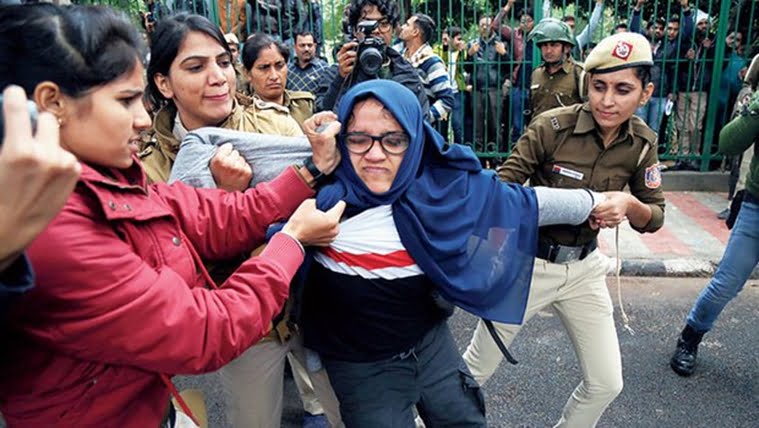
Punitive measures do nothing to address or change the material conditions that compel someone to do the act in the first place. Why is it that when white people in the US are more likely to deal drugs in the first place, people believe Black men are more likely to do so and also get arrested for it at a higher rate anyway? Why is it that Black women and other women of colour in the US – most of whom are mothers and the primary caretakers of their children – are incarcerated at an increasingly higher rate?
How has the lack of emotional, social and economic support failed these communities so, that they are compelled to turn to extreme means to satisfy basic needs leading to our generalizing criminalisation of them? Why are we not questioning the simultaneous, constant demonisation of Dalit and Muslim people in India and why are we not rattled by the figures that indicate Dalits, Muslims and the tribal population are more susceptible to being jailed here?
For Ruth Wilson Gilmore, a prominent Black abolition activist and organizer, “the conditions under which the atrocity has occurred must change, so that they can’t occur again.” No one’s asking what would compel someone to commit a crime or do something understood as wrong. Why do some people choose to act this way and others don’t? We, and the punitive measures we impose, focus solely on the fact that a “crime” has taken place, that someone has done this crime, and our predominant sense of justice asserts that therefore that someone needs to be punished.
To blame it on psychology or an inherent disposition to do something understood as bad is dangerous in its inaccuracy and perpetuation of discriminatory presumption. More so, it is also fatal because it deliberately disregards that some of us have the privilege of navigating social, psychological, economic and governmental systems with ease, while for too many of us, it is a constant battle for the right to just exist.
For years, as I watched people turn into hashtags online, I simply thought that the institutions of policing and law were necessary and only needed to be reformed. It wasn’t necessarily the “few bad apples” argument but more the “We need this apple tree and only this apple tree because nothing else can substitute it!” line of thinking.
Also read: Unnamed George Floyds Of India—The Episodic Police Brutality In 2019-20
For years, as I watched people turn into hashtags online, I simply thought that the institutions of policing and law were necessary and only needed to be reformed. It wasn’t necessarily the “few bad apples” argument but more the “We need this apple tree and only this apple tree because nothing else can substitute it!” line of thinking. The police and prison abolition movement, as I am learning, demands that we chop it all down, uproot everything it has touched, till the earth again and prepare it for a different kind of ecosystem to grow.
Angela Davis – also a long time abolitionist activist and one of the most prominent former Black Panther Party members alive today, describes, in a Dream Defenders webinar, that abolition involves “both the negative process of overturning and disestablishing, but also the reconstructive process of creating something new.” It means realising that there are conditions and realities that enable such institutions to flourish that we need to attempt to address as holistically as we can, so that at some point in our lifetime, we won’t need them anymore.
That also requires reckoning with why these institutions were set up in the first place, under the guise of law and justice. With George Floyd’s death, people in the US and, arguably internationally, are reckoning with this external and internal introspecting, and attempting to advance abolitionist ideas through protests, educational webinars and calls to city government to defund police and channel cuts to community-oriented initiatives and public education.
For me, as a non-resident Indian who has lived in the US for the past five years, I do not doubt that there are so many NRIs and Indians based in India that are now also waking up to this, but I wonder how much of a hold these concepts will have in a country even more steeped in institutionalized injustice, everyday brutality, and an extremely (corporally) punitive social culture.
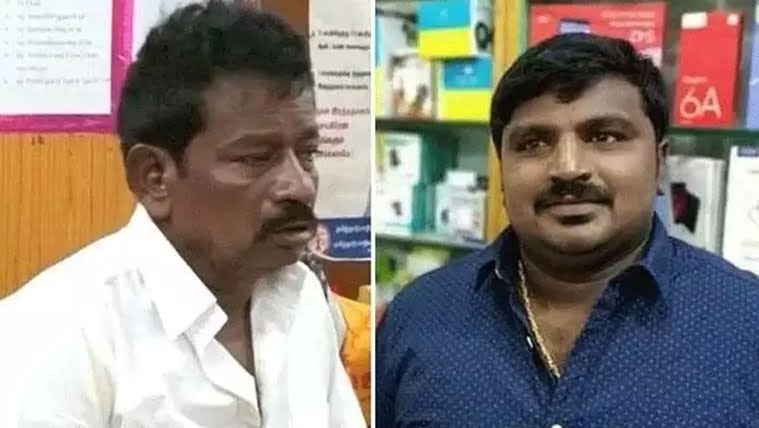
The most recently prominent case of police violence in India saw policemen in Tamil Nadu brutalise Jayaraj and Bennicks for keeping their mobile shop open past COVID-19 curfew hours. Incidentally, this is not the first time that Tamil Nadu’s police force came to be noted for using police brutality. However, this case spurred more cries for police reform and the arrest of the guilty cops. Suchitra Karthik Kumar – a Radio Jockey in Tamil Nadu – whose viral video detailing the account of violence against Jayaraj and Bennicks has made the rounds on every social media platform – even alluded to hanging the guilty police in question. Much like in the US after George Floyd’s death, a lot of justifiably angry Indians are calling for the conviction, arrest and even death of killer cops while demanding that the police system be reformed unreservedly.
But, why should we expect that reforming a residual system of British colonialist repression which has mutated to what it is today, explicitly meant to coerce and control, will lead to any change? What is the change, and the magnitude of the change, we are asking for? Police to be thrown in jails that necessitate police to begin with? Fewer deaths by the hand of the state or none at all? Hanging killer cops for their abuse, and thus legitimating a mode and system of punishment reserved for the “worst of the worst” but not pushing back against the conditions and accumulation of power that empowers people to do something that heinous to begin with? We have seen time and time again how punishment, in and of itself, curtails but does not eradicate the possibility of this happening again.
As long as we are justifying the need for police, prisons and the punishment that they represent, we will continue to see deaths like this. After all, the policemen involved in this tragedy were allegedly “punishing” Jayaraj and Bennicks for staying open past curfew. It is not just the individuals that are the problem – it is the institution (and the culture that legitimises it) and what the institution upholds, represents and allows to happen in the name of (upper class, privileged, upper caste, “true citizen”) safety. We need to expand the limitations we have placed on our understanding of what justice and accountability looks like beyond this one – of punishing bad people (in power, or not) using the mechanisms of the same institutions that delegates (and takes away) that power.
None of this is to say that people should not face consequences for doing harm and perpetuating abuse. The frameworks of transformative and restorative justice provide some idea of what survivor and victim-centric healing and justice might look like outside of the carceral system. At the core of this should be the reality that the communities most targeted by the state – and by extension, the police – have been saying that these systems do nothing to actually protect them. It is paramount, then, that those of us who don’t live under the constant threat of police and state violence consider the lived realities of those who bear the brunt of this system in our calls to action.
It has been difficult for me to imagine an India where police and prisons might not exist – we are so absolutely starved for even the most bare minimum of justice for the most heinous acts. So much so that retribution – at its most extreme – is something we have come to understand as ‘justice’.
It has been difficult for me to imagine an India where police and prisons might not exist – we are so absolutely starved for even the most bare minimum of justice for the most heinous acts. So much so that retribution – at its most extreme – is something we have come to understand as ‘justice’. It gives us this false sense of hope that maybe people in power will be a little more hesitant about what they do next. As difficult as it is, I think it is important we realize that this retribution has brought us, at most, temporary vindication with little to no promise of transformational change. If no more police brutality is the end goal, then we cannot stop at asking inherently oppressive and coercive institutions to kill us a little less.
A criticism I came across of the police and prison abolition in the Indian context, is that the police are already underfunded and that we cannot apply what happens in America to other countries. The American police force is some of the most well funded in the world with average salaries ranging in the $100,000 per year, and they still managed to kill someone for something as meager as allegedly producing a $20 counterfeit bill.
If an underfunded Indian police force is able to wreak this much havoc on the civilian population, what do we hope to achieve by “appropriately” funding them? Instead, what could be preferable is if this funding is channelled into employment generation and social benefit programs that are actually useful for the very people they are policing, so that their needs are met and they are not compelled to commit crimes.
It seems so obvious to the point of sounding silly, but violence begets violence. If we continue to wield punishment as a legitimate form of correction in the home, we are telling our children it is okay to beat someone as long as they believe someone has wronged them or done something they do not like. We teach them that people know only to answer to violence and pain, and that violence against someone who is in a weaker position allows you to control them more – and that it is fine if they are meant to be subject to your whims anyway, like a child is to a parent.
If we do not try to digress from the notion that punishment is the most effective mode of generating accountability – something that we learn and internalise intergenerationally – then our demand for the state and its police force to reform will only reflect an ideal system that we surely know doesn’t even work on a smaller, personal scale.
Sasha J. is the self-described “author of her own misfortunes”. She is invested in understanding the world around us and how we continue to live in it; she hopes to use her words to get others to feel and think the same. In her free time, she enjoys watching reality dating shows, listening to the same ‘08 hits on loop and bookmarking articles she’ll never read. She can be found on Twitter.
Featured Image Source: CITU
